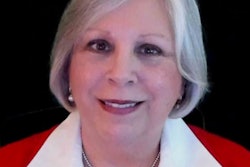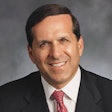Many dentists prefer to spend less time and fewer resources to train new employees because they think it’s only a matter of time before they leave. It’s a self-fulfilling prophecy. If you believe it’s true that your employees will leave the first chance they get, then you will act as if it will happen, and this becomes the norm for your practice.
You may find yourself unconsciously looking for a replacement right after you have hired a new person. One dental office manager reported to me that the dentist who hired her kept interviewing for her position after she had been hired. She was told by the dentist that he needed a "backup" plan. However, she reported feeling anxious and insecure when hearing this from the dentist.
The key to a successful practice is a safe, nurturing culture
 Dr. James V. Anderson.
Dr. James V. Anderson.
The dental industry as a whole should invest quality time in not just team-based skills-learning but also relationship-building. It is a good use of resources, as each improved encounter with a patient will be positive.
Your dental team is a significant reason why patients keep returning to your practice. An engaged and well-trained employee builds patient trust, allowing the dentist to provide services. Patients are known to share their thoughts and stories with their hygienist or dental assistant, and they place their trust in these individuals that they will look out for them. Taking an interest in developing your team builds trust, and trust becomes part of your culture.
Have you developed a culture of trust within your dental practice? If so, how is it manifested in your practice? How do you build a culture that facilitates a positive patient and team experience?
Before answering these questions, ask yourself, “Who has trusted you?” Think back to a time when someone believed in you and took a chance on you. How did that make you feel?
You may have been 6 years old or 50, and the person who believed in you could have been anyone, such as your parent, a teacher, or a clergy member. What you remember is what this person did for you and how it changed your life. You want to create a similar feeling and use it to build a culture of trust in your practice.
What is a ‘good’ company culture?
A “good” company culture is sometimes hard to describe. People in these environments say they feel valued, appreciated, and trusted. In a positive company culture, employees know the values by heart and live these values daily. A good company culture also exhibits the following characteristics:
- Morale. Your team members feel good about being in the practice, and it shows in their attitudes toward each other and patients.
- Respect. Team members respect and admire one another. Team members appreciate the skills and talent each employee brings to the practice and patients.
- Productivity. Employees and teams are more productive and innovative when they feel respected and trusted to do their best work. Trust also helps build stronger relationships between team members, improving communication and collaboration. According to a study by the Harvard Business Review, employees who trust their managers are more productive, engaged, and likely to stay with the company.
- Motivation and engagement. Dentist owners must model the behavior and engagement they want from their team members. When there is a sense of camaraderie and support, groups and individuals are willing to go above and beyond.
- Trust. People can excel in their work when they feel they are trusted by their colleagues and their bosses. Emphasizing employee wellness, helping foster social connections between employees, and listening to and addressing concerns builds teamwork that in turn facilitates a trusting environment.
- Autonomy. Making an informed and uncoerced decision comes from having inner confidence about one’s abilities. People feel a sense of freedom and ownership when they experience autonomy in their work.
- Innovation. An attitude and willingness to transform patient care and service are necessary for practice growth and are welcomed in a trusting environment. The worn-out statement that “this is the way we have always done it” should never rule your practice’s systems.
- Transparency. In today’s dental practices, a leader should be open and transparent about the business’s goals and achievements. Transparency allows the team to ask questions and get honest answers. An accessible leader makes the team stronger.
- Mentorship. Offer your team support, advice, and guidance for their careers. Ask them what they want to improve and then create ways to help them reach their goals. Share your career journey with your team, including your successes, setbacks, and your best career advice.
Creating a solid office culture of trust not only helps attract top talent -- it can also ensure that they stick around.
Dr. James V. Anderson is a practicing dentist in Syracuse, UT, and is the CEO and founder of eAssist Dental Solutions. He can be reached via email.
The comments and observations expressed herein do not necessarily reflect the opinions of DrBicuspid.com, nor should they be construed as an endorsement or admonishment of any particular idea, vendor, or organization.



















